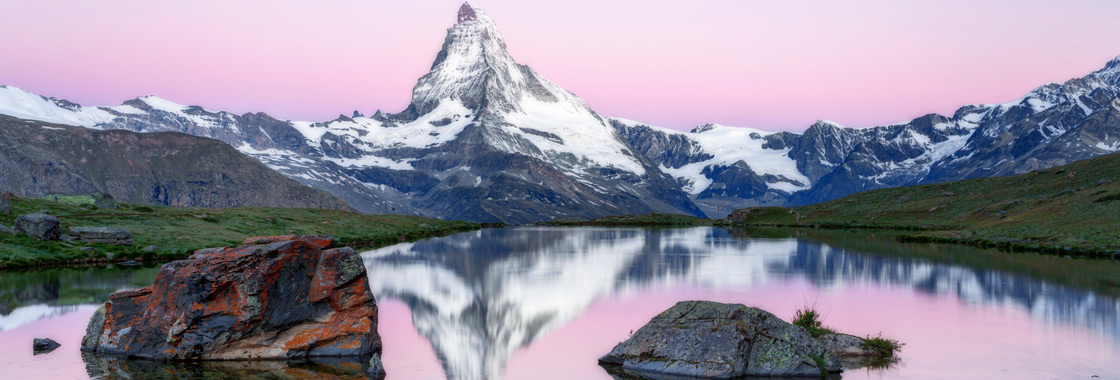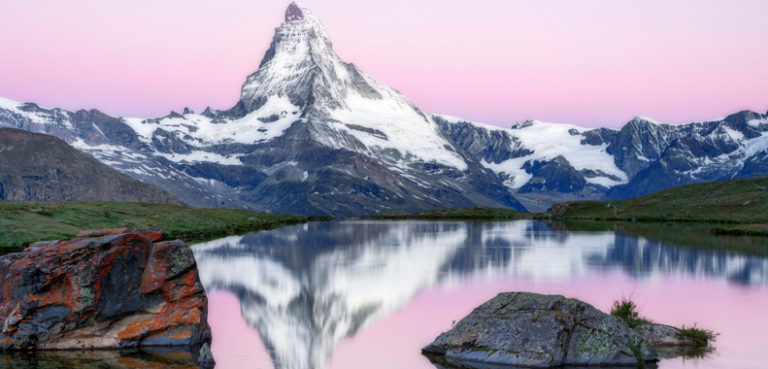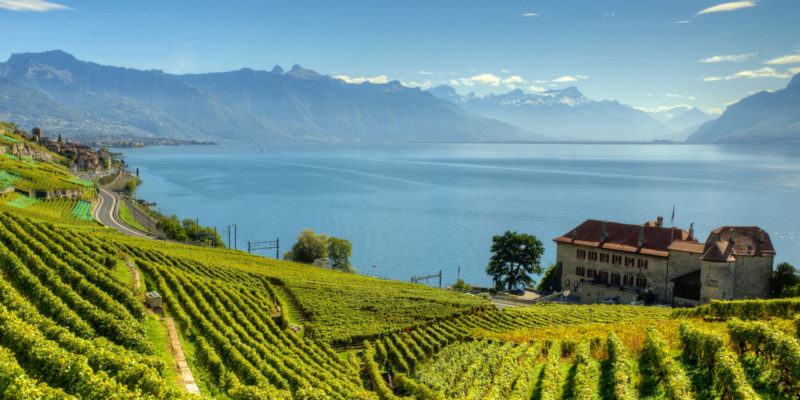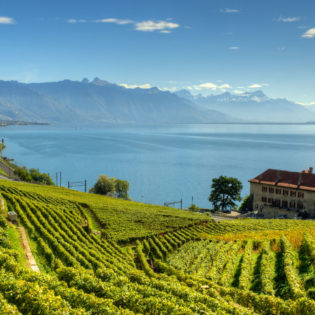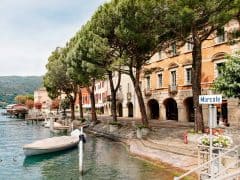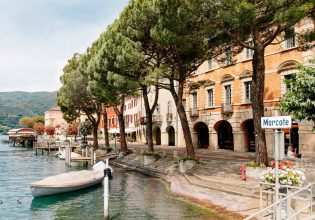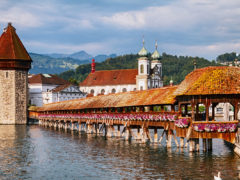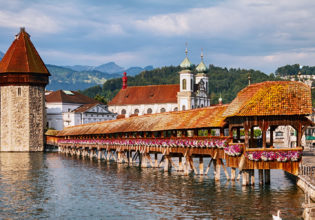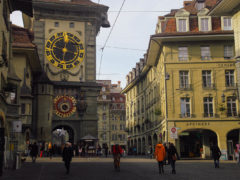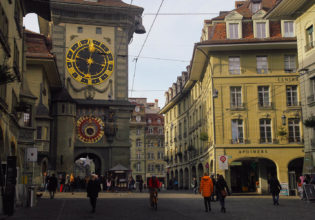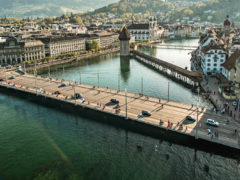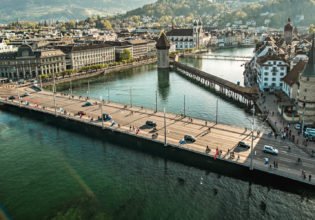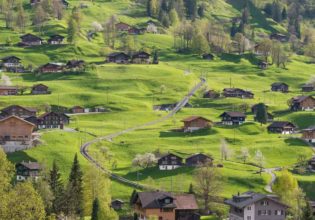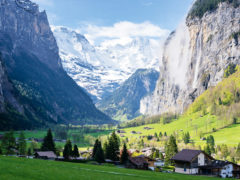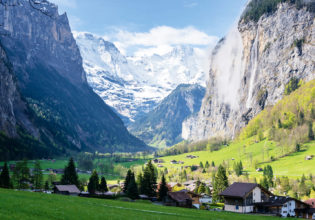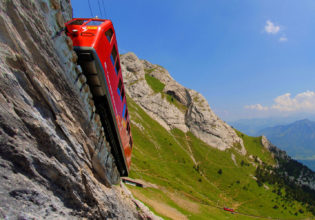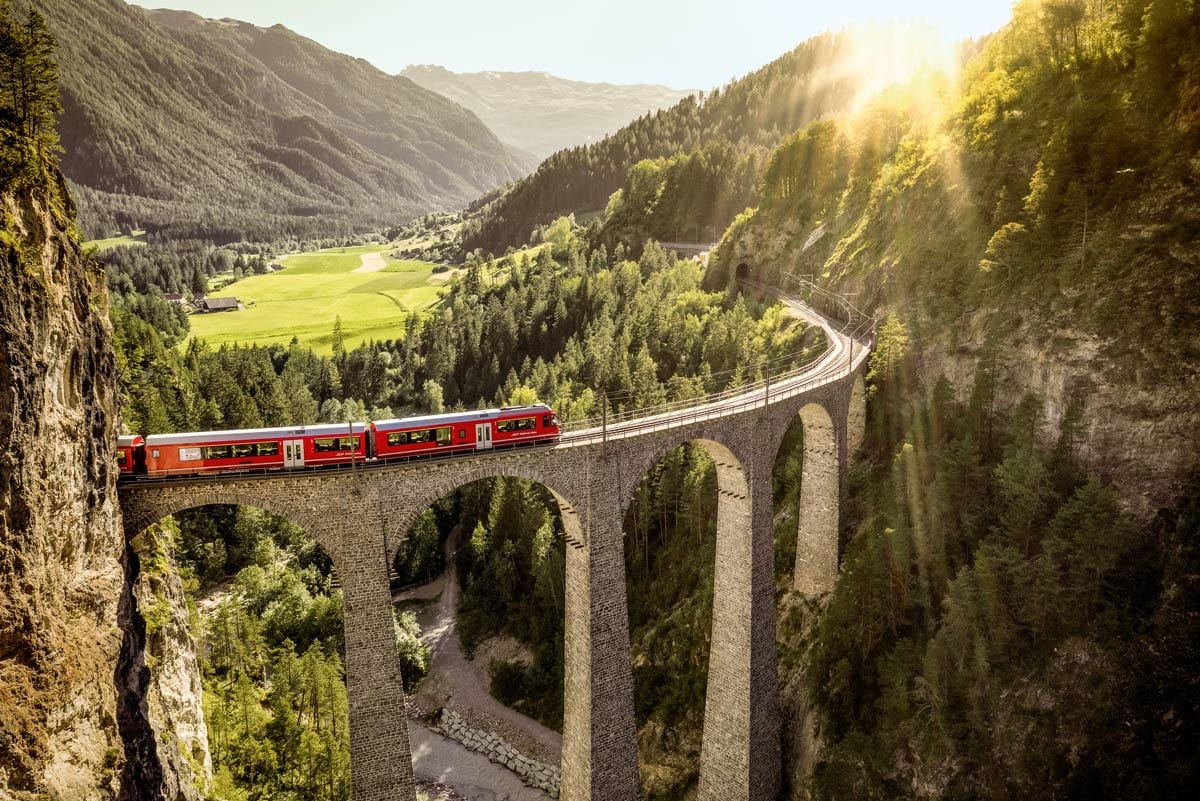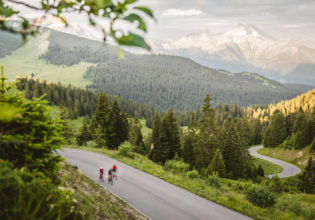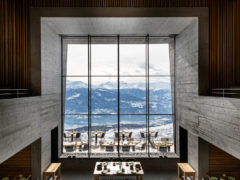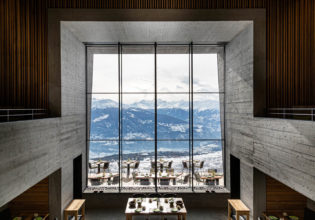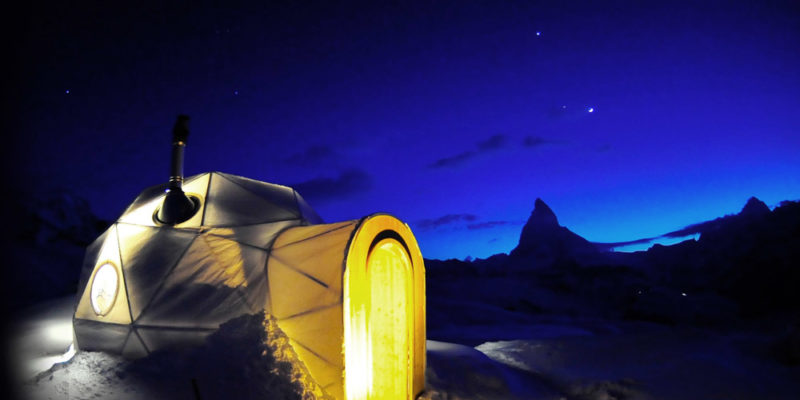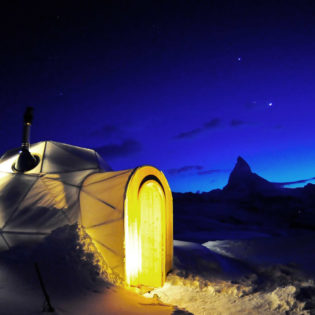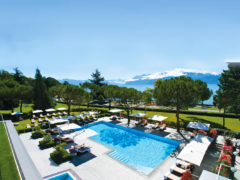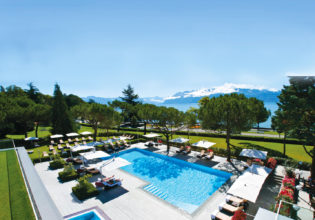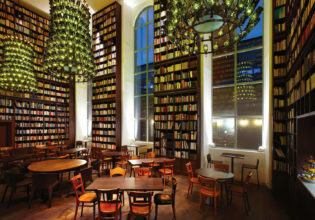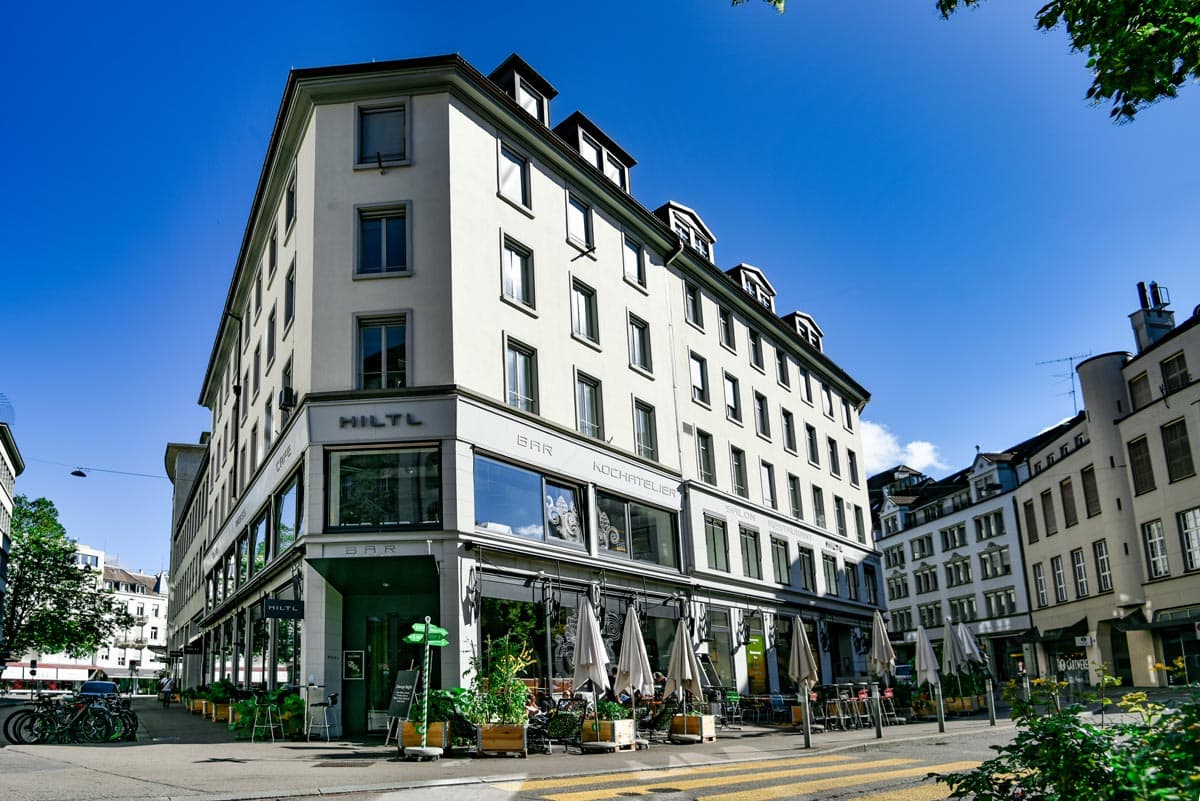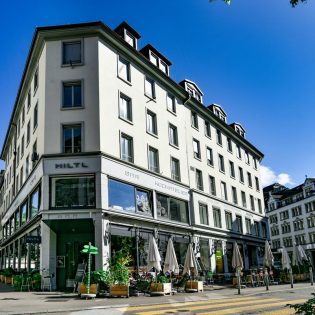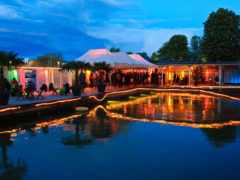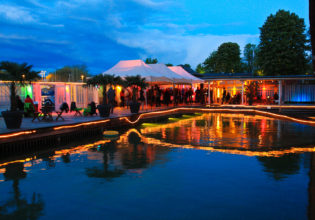Switzerland: home of the Alps, land of raclette cheese, purveyor of fine chocolate, birthplace to the Red Cross. For a country 16 times smaller than Texas, it certainly has plenty of claims to fame. Welcome to our Switzerland travel guide.
But if you’ve never explored Switzerland in-depth you wouldn’t be blamed for thinking that’s all there is. Stick with us through and you’ll see that travels through the world’s favourite neutral party is anything but ‘meh’.
Here’s what we mean…
Places To Visit In Switzerland
Of course, if there’s one thing the Swiss don’t mess around about its skiing. Arrive in peak snow season (mid-January to mid-March) and take your pick from a range of resorts offering pristine pistes for any ability. Zermatt is a crowd-pleaser, offering over a diverse selection of courses across Sunnegga, Gornergrat, Klein Matterhorn and Schwarzsee, while the constant view of the Matterhorn Mountain makes for an impressive backdrop.
Having hosted two Winter Olympics, St. Moritz (about 2.5 hours from Zürich) is a professional skier’s playground. It can also be a pricier option for travellers but it has the après scene to match. Here the swanky set up alongside each other at the glamourous King’s Club and sneak glances at world pros within the walls of Chesa Veglia.
This doesn’t mean families miss out on the fun, with many preferring the long winding intermediate runs along Corvatsch.
Best Time To Visit Switzerland
Switzerland’s specialty is its ability to be all things to all people (possibly due to having Italy to its south, France to its west, Germany to the north and Austria to its east). For this reason, no matter when you go you’re guaranteed a good time. Weather-wise though? Here’s the drill.
January to February are the peak winter months, with short days and undoubtedly the best time to take advantage of the country’s winter sports.
The warmer months of April through to June are when most of the hiking trails are open to visitors and are actually a great time to visit if you want to avoid crowds during the months between winter and summer.
July to August are high summer and the countryside booms with paragliders and hikers. But if you’re looking to visit Switzerland for a steal then save your visit for October/November when the last of the summer hikers have set off home and just before many of the ski resorts have fully opened for winter.
Getting There
Airlines that regularly fly to Geneva and Zürich from Australia include; Swiss International Airlines, Eithad Airlines, Emirates Airlines, Qantas and more.
Things To Do In Switzerland
Once you’ve yodelled your way out of the airport, the crux of your Swiss itinerary will depend largely on when you visit. Stop by during spring and summer and you’ll do well to start your adventures in Zernez (approx 2.5 hours drive from Zürich). Here you’ll find almost 80 different hikes amongst the wildflowers, glaciers and jewel-hued lakes of the Swiss National Park.
There are also plenty of indoor experiences to explore as well, from multiple Michelin-starred eateries such as Cheval Blanc, to the utterly quirky Alien-inspired Giger Bar (designed after the works of Swiss artist H.R. Giger). Over in Geneva you can even take a tour of CERN, the world-famous home of the Hadron Collider, which spins and collides particles to create new matter. But if you’re not quite a sci-fi buff then check out our ‘24 Hour guide to Geneva in summer’
If you prefer your sightseeing to lean closer to the traditional then Chillon Castle overlooking Lake Geneva is the perfect place to take in sights across the surrounding Alps and fine-tune your knowledge on 13th century Counts.
Yes, it seems Switzerland might be boxed in geographically but when it comes to cultural experiences it definitely likes to usurp expectations.
Choosing Where To Stay
Choosing where to stay might be the toughest thing you’ll have to do while in Switzerland. The country is literally a holidaymaker’s playground and there are unique mountain resorts, wilderness chalets and quirky design hotels aplenty.
A couple of highlights include the belle Époque beauty of Victoria-Jungfrau Grand Hotel & Spa in Interlaken. A royally beautiful haven to take in stunning views across the peaks of Jungfrau but you’d expect that for the princely sum of almost $AUD900 per night during peak season.
But if you really want to get the lay of the land then it helps to get as close to it as possible and Hotel Whitepod was created just for this purpose. This is one of the original eco hut resorts, consisting entirely of luxuriously appointed ‘pod’ tents that offer undisturbed clear views of the night sky and private balconies for taking in the snow-capped peaks of Valais.
Where To Eat In Switzerland
We know it’s hard to go past a gooey plate of raclette and bread or just get your fill of fondue but there’s actually a whole world of foodie delights in which to indulge in Switzerland.
Starting with Vacherin Mont D’or, a dreamy creamy slightly fragrant cheese usually only available between September and April and only made in the villages around the Jura region. As if this delicacy wasn’t delicious enough, the Swiss then slather it in white wine and garlic, cook it in its traditional wooden packaging and serve over warm potatoes. Let’s just say the Swiss know their comfort foods well.
Meat-lovers will love trying Bündnerfleisch, a type of salted beef that’s been dried in the clean fresh Swiss alpine air. It’s so delicious people just inhale it (pun very much intended).
Tours & Deals In Switzerland
Alright so you’ve made your way to Switzerland, now what? Well don’t stress my Birchermüesli-loving buddy because there’s a tour to suit every type of traveller. Starting with the GoldenPass Line rail journey which provides an excellent (and relaxing) introduction to the lakes of Lucerne, Interlaken and Montreax.
Feeling a little more intrepid after that? Then make your way to the world’s steepest funicular from Schwyz to Morschach. Climbing at a gradient of 110% this technical wonder also happens to have barrel-shaped carriages that rotate to ensure the ride stays level for passengers. Now that’s how you balance adventure with comfort.
Music Festivals In Switzerland
You thought this country was just about scrupulous watch-making and Swiss army knives? Think again. Switzerland is actually a hot-bed of musical events and in typical Swiss style they cater to all genres.
Music-lovers the world over visit the country every June for Geneva’s Fête de la Musique, a three-day city-wide party that hosts over 300 musical acts on stages across Old Town, in St Pierre Cathedral and open-air acts in Bastions Park.
The Montreux Jazz Festival in July offers a lot more than just sax and bass, rather it’s a smorgasbord of diverse talent including a few names you might’ve already heard of: Thom Yorke, Elton John and Tom Jones.
If you want to experience a truly authentic local sound then make sure you’re in Bern’s Old Town during August for the Busker’s Burn Street Music Festival, which invites revellers to wander acts at their own pace, tipping into performer’s hats as a sign of appreciation.
